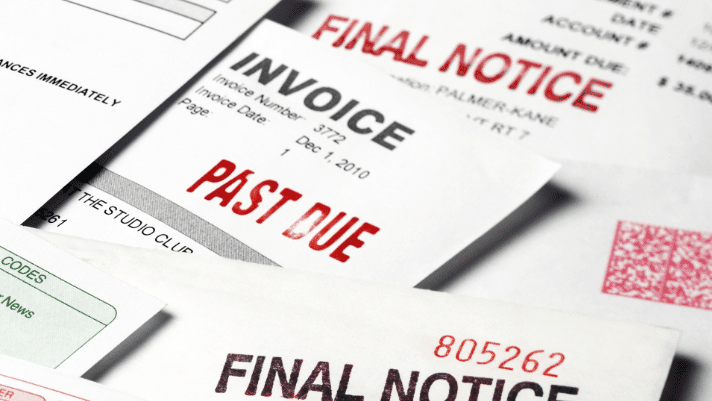In Colorado, you have 21 days to respond to a debt collection lawsuit, and filing an Answer document with the court typically incurs a fee ranging from $80 to $192. To streamline this process, consider using ZumaZip, a convenient online tool that helps you draft and file your Answer in just 15 minutes. With ZumaZip, you can navigate the required paperwork quickly and efficiently, saving you time and hassle in responding to the lawsuit.
“Man, I can’t wait for this collector to sue me!” — said no one ever.
Facing a debt collection lawsuit can be daunting, but knowing how to respond is crucial. This article breaks down the process of answering a debt collection Summons in Colorado, providing you with essential information and guidance tailored to the state’s requirements. From understanding state deadlines and forms to navigating filing fees, we’ve got you covered. Let’s make this process a little less overwhelming together.
Respond to the lawsuit before the Colorado deadline
Colorado Rules of Civil Procedure Rule 12(a)(1) states:
“A defendant shall file his answer or other response within 21 days after the service of the summons and complaint.”
Responding promptly to a debt collection lawsuit is crucial in Colorado. Once you receive the Summons and Complaint, you have 21 days to file an Answer.
Failing to respond within this timeframe could result in a default judgment against you, leading to wage garnishment and property seizure. It’s essential to take action before the deadline to protect your rights and avoid further financial consequences.
Colorado Answer to Summons Forms
The easiest and fastest way to draft a response to a debt collection lawsuit is this Answer form. ZumaZip walks you through the process of drafting your Answer in minutes. All you have to do is respond to a few questions about the case.
Here’s a sample of ZumaZip’s Answer form.
If you would rather draft your own Answer, you can fill out the Colorado Answer form instead. This process might be a little less straightforward, but there are tools on Colorado’s judicial branch website that can walk you through it.
Colorado charges a fee to file your Answer
Some states charge an Answer filing fee, and Colorado is one of them.
Unfortunately, you must pay a filing fee in Colorado for the court to accept your Answer and file it into the case records. If you try to send your Answer without paying the fee, the court will simply reject it.
Here are Colorado’s civil filing fees:
- The Answer filing fee is $80 if your case involves less than $1,000.
- The Answer filing fee is $100 if your case involves $1,000-$14,999.99.
- The Answer filing fee is $130 if your case involves $15,000-$25,000.
- The Answer filing fee is $192 if your case involves more than $25,000.
If you cannot afford to pay the Answer filing fee, you can request that the court waive your fees by filing a JDF 202 form.
Follow these steps to respond to a debt collection case in Colorado
When facing a debt collection case in Colorado, it’s crucial to respond promptly and effectively. Here’s a step-by-step guide to help you navigate the process:
- Carefully review the Summons and Complaint served by the debt collector. Take note of each allegation listed in the Complaint.
- Draft your Answer document, responding to each allegation in the Complaint. You can admit, deny, or state that you lack sufficient knowledge to respond to each allegation.
- Assert any affirmative defenses you may have. These defenses provide legal reasons why you should not be held liable for the debt.
- File your Answer document with the court within 21 days of receiving the Summons and Complaint. Ensure you comply with all court rules regarding formatting and submission.
- Serve a copy of your Answer on the plaintiff or their attorney. This can usually be done via mail or in person.
By following these steps and responding to the debt collection case in a timely manner, you can protect your rights and potentially achieve a favorable outcome.
1. Answer each issue of the Complaint.
Answering the complaint can be scary, but with these instructions, it will be simple.
The first section of your Answer should focus on responding to the allegations outlined in the Complaint document. Find the numbered list of allegations in the Complaint and then decide how you want to respond to each one. You should list your responses in a corresponding, numbered list.
You can answer each allegation in one of three ways:
- Admit: this is like saying, “This is true.”
- Deny: this is like saying, “Prove it.”
- Deny due to lack of knowledge: this is like saying, “I don’t know.”
Many attorneys recommend making a general denial, where you deny everything in the Complaint and force the other side to prove everything. You can use ZumaZip’s Answer form to respond in minutes or Colorado’s form, following its instructions.
2. Assert your affirmative defenses.
After you’ve responded to each allegation, you’re ready to move on to the next section of your Answer document: where you assert your affirmative defenses.
An “affirmative defense” is a reason why the person suing doesn’t have a case.
More specifically, Colorado Rules of Civil Procedure Rule 8(c) states:
“In pleading to a preceding pleading, a party shall set forth affirmatively accord and satisfaction, arbitration and award, assumption of risk, contributory negligence, duress, estoppel, failure of consideration, fraud, illegality, injury by fellow servant, laches, license, payment, release, res judicata, statute of frauds, statute of limitations, waiver, and any other matter constituting an avoidance or affirmative defense. Any mitigating circumstances to reduce the amount of damage shall be affirmatively pleaded.”
So, here’s the scoop in a nutshell: if there’s any legit reason why that debt collector or creditor shouldn’t come out on top in this legal tango, you gotta lay it out in your Answer document. But fret not! We’ve got your back with some nifty affirmative defenses that could turn the tide:
- Not your account? Boom, there’s one.
- Contract got the axe already? Well then, you might be off the hook.
- Statute of limitations partying past its deadline? Time’s up, they can’t touch you.
- Debt paid up or pardoned? Score!
- Only partially paid? That’s still a point in your favor.
- Co-signed without the lowdown on your rights? You’ve got a valid argument right there.
Oh, and just a heads-up: “I can’t afford it” won’t fly as an affirmative defense, according to Rule 8(c).
Now, here’s the cherry on top: ZumaZip’s got the magic touch to sprinkle some legal lingo on your affirmative defenses, making sure they’re rock-solid in your Answer. So, let’s navigate this legal maze together and turn the tables in your favor!
Make the right affirmative defense the right way with ZumaZip.
3. File the Answer with the court and send a copy to the plaintiff.
Hey, you’re making strides in the legal dance! Now, let’s seal the deal and make sure your Answer gets its moment in the spotlight. Here’s how to pull it off flawlessly:
- Print not one, but two copies of your Answer. Double the copies, double the confidence!
- One copy takes a trip to the court via mail. Make sure it arrives safe and sound.
- The other copy? Well, that’s headed straight for the plaintiff’s attorney. They’re the ones on the other side of the ring, after all.
Oh, and here’s the kicker: your Summons and Complaint hold the treasure map to those addresses you need. So, give ’em a peek!
And remember, you’ve got a 21-day window to make this magic happen. So let’s get those Answers filed and set the stage for your legal victory dance!
ZumaZip can file your Answer for you in all 50 states.
Why is ZumaZip?
ZumaZip sounds like a game-changer for handling those pesky debt collection lawsuits! Picture this: a step-by-step web-app that holds your hand through the entire process, asking all the right questions to craft your Answer with finesse.
Once you’ve dotted the i’s and crossed the t’s, you’ve got options: you can either print out the completed forms and send them off to the courts yourself, or you can let ZumaZip handle the legwork for you. Plus, they offer the cherry on top: an attorney review to make sure your document is tip-top.
It’s like having your own personal legal assistant at your fingertips, making the whole ordeal a breeze. So why stress when you can ZumaZip your way to peace of mind?
What If I Haven’t Been Sued Yet?
Ah, gotcha! If you’re in the stage where you’ve received those pesky collections notices but haven’t quite reached the lawsuit stage yet, don’t break a sweat just yet. There’s a savvy move you can make called the Debt Validation Letter.
Here’s the lowdown: whenever a debt collector comes knocking, whether it’s via phone or good old-fashioned snail mail, you’ve got the power to push back. How? By firing off a Debt Validation Letter. This letter is your ticket to formally disputing the debt and putting the ball in their court.
Once they receive your letter, they’re on pause mode. Yup, they can’t ring you up or keep hounding you for cash until they’ve coughed up the proof that you actually owe the dough.
And hey, I’ve got a little something to make it crystal clear for you: a nifty flowchart that lays out exactly how to use that Debt Validation Letter to come out on top. So let’s tackle this one step at a time and show ’em who’s boss!
Get started with a Debt Validation Letter here.
Check the statute of limitations on debt in Colorado
Before you agree to make any payments to a debt collector, you should check the statute of limitations on your debt first.
The statute of limitations is the time limit that a debt collector or creditor has to sue someone for a debt they owe. The statute of limitations clock starts to run on the date of your last payment on an account. This means that if a debt collector reaches out about an old debt, and you start making payments on the account, the clock will restart on the statute of limitations.
The statute of limitations is different in every state. According to Colorado law, CO Rev Stat § 13-80-101 states:
“(1) The following civil actions, regardless of the theory upon which suit is brought, or against whom suit is brought, shall be commenced within three years after the cause of action accrues, and not thereafter:
(a) All contract actions, including personal contracts and actions under the “Uniform Commercial Code”, except as otherwise provided in section 13-80-103.5.”
This means that Colorado debt collectors only have three years to sue you for a credit card debt.
Similarly, CO Rev Stat § 13-80-103.5 states:
“(1) The following actions shall be commenced within six years after the cause of action accrues and not thereafter:
(a) All actions to recover a liquidated debt or an unliquidated, determinable amount of
money due to the person bringing the action, all actions for the enforcement of rights set forth in any instrument securing the payment of or evidencing any debt, and all actions of replevin to recover the possession of personal property encumbered under any instrument securing any debt; except that actions to recover pursuant to section 38-35-124.5 (3), C.R.S., shall be commenced within one year;
(b) All actions for arrears of rent;”
This means you cannot be sued for rental debt debt that is more than six years old.
The table below outlines Colorado’s statute of limitations on different types of debt:
| Debt Type | Deadline |
|---|---|
| Credit Card | 6 years |
| Medical | 6 years |
| Student Loan | 6 years |
| Auto Loan | 6 years |
| Mortgage | 6 years |
| Personal Loan | 6 years |
| Judgment | 6 or 20 years |
| Colo. Rev. Stat. § 13-80-103.5 |
Utilize Colorado legal aid organizations
Hiring an attorney can be tricky and expensive. Luckily, the state of Colorado has several legal aid organizations that can help people who cannot or do not want to hire a lawyer and are representing themselves. Here are some of the prominent legal aid organizations in Colorado:
- Legal Aid Foundation of Colorado
- Colorado Legal Services
- Legal Services Clinics in Denver Area
- Legal Services Clinics in other Colorado Counties
Colorado court locations
If you don’t feel comfortable sending your court documents over e-file, you can always visit your courthouse and file in person. Use this Colorado Courts Directory tool to find the address of your courthouse. Just click on the county where you live, and a new page will open where you can scroll to the bottom to find the courthouse address.
Knowing where your courthouse is located can help you be better prepared for your trial and stay updated on your case status.
You’ve got it down to a T! Here’s your quick cheat sheet for handling that Summons like a champ in Colorado:
- Tick-tock! You’ve got 21 days to respond to that debt collection lawsuit.
- Take the stress out of drafting your response with ZumaZip’s handy Answer form.
- Be ready to cough up a filing fee ranging from $80 to $192, depending on the case type.
- DIY your Answer or let ZumaZip do the heavy lifting, making sure to address each allegation and assert those affirmative defenses.
- Don’t miss the boat! File that Answer with the court and don’t forget to shoot a copy over to the other side’s attorney.
- Remember, the clock’s ticking! The statute of limitations for credit card debt is three years in the beautiful state of Colorado.
With these key points in your back pocket, you’re ready to face that Summons head-on like a pro!
What is ZumaZip?
ZumaZip is a convenient solution designed to streamline your response to a debt collection lawsuit. Here’s a breakdown of what you can expect when you use ZumaZip:
Firstly, you’ll access our user-friendly web application, which guides you through the process step by step. You’ll be prompted to answer a series of questions related to your specific situation. Once you’ve completed the questionnaire, you have the option to either print out the finalized forms and mail them to the appropriate courts yourself, or you can opt to utilize ZumaZip’s services to file them on your behalf. Additionally, if you choose this option, an attorney will review your document for added peace of mind.
If you’re seeking guidance on how to effectively respond to a debt collection lawsuit, ZumaZip can provide the assistance you need. Feel free to explore our FAQs for more information on what ZumaZip has to offer.
What if I haven’t been sued yet?
If you’ve only received a collections notice, but not a lawsuit, the best way to respond is with a Debt Validation Letter. When a debt collector contacts you in any way, whether it’s by phone or mail, you can respond by formally requesting a debt validation with a Debt Validation Letter . This letter notifies the collector that you dispute the debt and forces them to provide proof you owe the debt. They can’t call you or continue collecting until they provide validation of the debt. This flowchart shows how you can use a Debt Validation Letter to win.
Get started with a Debt Validation Letter here.
How to Answer a Summons for debt collection in all 50 states
Here’s a list of guides on how to respond to a debt collection lawsuit in each state:
- Alabama
- Alaska
- Arizona
- Arkansas
- California
- Colorado
- Connecticut
- Delaware
- Florida
- Georgia
- Hawaii
- Idaho
- Illinois
- Indiana
- Iowa
- Kansas
- Kentucky
- Louisiana
- Maine
- Maryland
- Massachusetts
- Michigan
- Minnesota
- Mississippi
- Missouri
- Montana
- Nebraska
- Nevada
- New Hampshire
- New Jersey
- New Mexico
- New York
- North Carolina
- North Dakota
- Ohio
- Oklahoma
- Oregon
- Pennsylvania
- Rhode Island
- South Carolina
- South Dakota
- Tennessee
- Texas
- Utah
- Vermont; Vermont (Small Claims court)
- Virginia
- Washington
- West Virginia
- Wisconsin
- Wyoming
Guides on how to beat every debt collector
Hey there! Facing off against a debt collector can feel like a daunting challenge, but fear not! We’re here to help you navigate through it all with our handy guides designed to assist you in beating every debt collector you encounter. Whether you’re facing a new lawsuit or dealing with a persistent collector, we’ve got your back. Stay positive, stay informed, and let’s tackle this together!
- Absolute Resolutions Investments LLC
- Accredited Collection Services
- Alliance One
- Amcol Clmbia
- American Recovery Service
- Asset Acceptance LLC
- Asset Recovery Solutions
- Associated Credit Services
- Autovest LLC
- Cach LLC
- Cavalry SPV I LLC
- Cerastes LLC
- Colinfobur
- Covington Credit
- Crown Asset Management
- CTC Debt Collector
- Cypress Financial Recoveries
- Delanor Kemper & Associates
- Eagle Loan of Ohio
- Educap
- Estate Information Services
- FIA Card Services
- Forster & Garbus
- Freshview Solutions
- Fulton Friedman & Gullace LLP
- Harvest Credit Management
- Howard Lee Schiff
- Hudson & Keyse LLC
- Integras Capital Recovery LLC
- Javitch Block
- Jefferson Capital Systems LLC
- LVNV Funding
- Mannbracken
- Mariner Finance
- Medicredit
- Michael J Adams PC
- Michael J Scott
- Midland Funding LLC
- Mullooly, Jeffrey, Rooney & Flynn
- Mountain Land Collections
- MRS Associates
- National Collegiate Trust
- Nationstar Foreclosure
- Northstar Capital Acquisition
- NCEP LLC
- NRC Collection Agency
- OneMain Financial
- Palisades Collection LLC
- Pallida LLC
- Paragon Revenue Group
- Pinnacle Collections Agency
- PMAB LLC
- Portfolio Recovery Associates
- Provest Law
- PYOD LLC
- Reunion Student Loan Finance Corporation
- Revenue Group
- Regents and Associates
- RSIEH
- Salander Enterprises LLC
- Second Round Sub LLC
- Security Credit Services
- Sherman Financial Group
- Suttell and Hammer
- T-Mobile
- Transworld Systems
- Tulsa Teachers Credit Union
- UCB Collection
- Velo Law Office
- Velocity Investments
- Waypoint Resource Group
- Weinberg and Associates
- Wolpoff & Abramson
Settle your medical debt
Having a health challenge is stressful, but dealing medical debt on top of it is overwhelming. Here are some resources on how to manage medical debt.
- Am I Responsible for My Spouse’s Medical Debt?
- Do I Need a Lawyer for Medical Bills?
- Do I Need a Lawyer to Fight Medical Bill Debt?
- Does Bankruptcy Clear Medical Debt?
- How Much Do Collection Agencies Pay for Medical Debt?
- How to Find Medical Debt Forgiveness Programs
- Is There a Statute of Limitations on Medical Bills?
- Medical Debt Statute of Limitations by State
- Summoned to Court for Medical Bills — What Do I Do?
- Summoned to Court for Medical Bills? What to Do Next
Stop calls from Debt Collectors
Do you keep getting calls from an unknown number, only to realize that it’s a debt collector on the other line? If you’ve been called by any of the following numbers, chances are you have collectors coming after you, and we’ll tell you how to stop them.



































